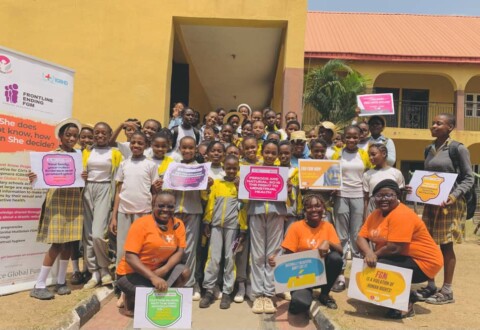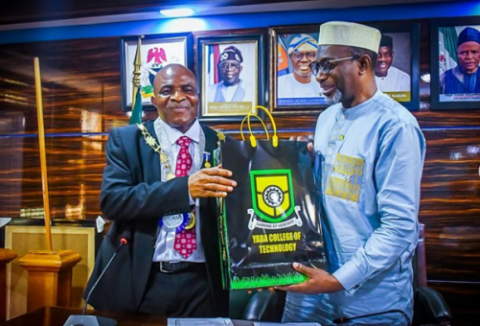In a continued effort to promote education and support underprivileged children, ActionAid Nigeria has distributed school materials worth millions of naira to children in the Gwagwalada and Leleyi Basa communities of the Federal Capital Territory (FCT).
The initiative, part of the organization’s Back2School Campaign, provided essential school supplies such as bags, sandals, uniforms, books, and mathematical sets to children from low-income families struggling to afford basic educational materials.
Speaking at the event, ActionAid Nigeria’s Country Director, Andrew Mamedu, emphasized the urgent need to tackle the rising number of out-of-school children in Nigeria, which currently stands at 18.3 million, according to UNICEF.
“This figure is deeply concerning,” Mamedu said. “Many children are deprived of education simply because their families cannot afford basic school supplies. As a society, we must not stand by and allow this crisis to escalate.”
He revealed that ActionAid launched a fundraising campaign in December, raising ₦1 million, which funded the initiative. “Today, we are equipping about 100 children with backpacks, sandals, mathematical sets, and other learning materials,” he added.
Mamedu also highlighted the challenges faced by children in these communities. “For many of them, this is their first time receiving proper school materials. Some have to walk nearly an hour just to reach the nearest primary school. Beyond this donation, we are advocating for the establishment of a new primary school in this area and will continue engaging the government to make it happen.”
He reaffirmed ActionAid’s commitment to education advocacy, pledging to return in a year to assess progress.
Also speaking at the event, Nkechi Ilochi-Kanny, Director of Business Development and Innovation at ActionAid, reiterated that education is a fundamental right and called on the government to take responsibility.
“Our approach is based on human rights, meaning the government holds the primary duty to ensure access to education,” Ilochi-Kanny stated. “We currently support two communities per month, but imagine the impact if we could raise ₦100 million—think of how many more children we could help.”
A representative from the FCT Universal Basic Education Board (UBEB), Abdurahaman Ibrahim Mohamed, acknowledged the challenges and assured that the government is working towards establishing 10 new junior secondary schools across various FCT communities.
Meanwhile, Samuel Nuhu, a volunteer teacher in Gwagwalada, shed light on the daily struggles faced by children due to the lack of schools in the area.
“Education is the foundation of any society. Without it, these children have no future. Some walk an hour every day just to attend class. These school bags will protect their books, and the mathematical sets will enhance their learning experience. Small gestures like these make a huge difference in their lives,” Nuhu explained.
He urged the government to act swiftly, stressing that children in these communities have been left behind for too long.
“The government must step up and ensure these children have access to quality education. Their future—and the future of our society—depends on it.”





